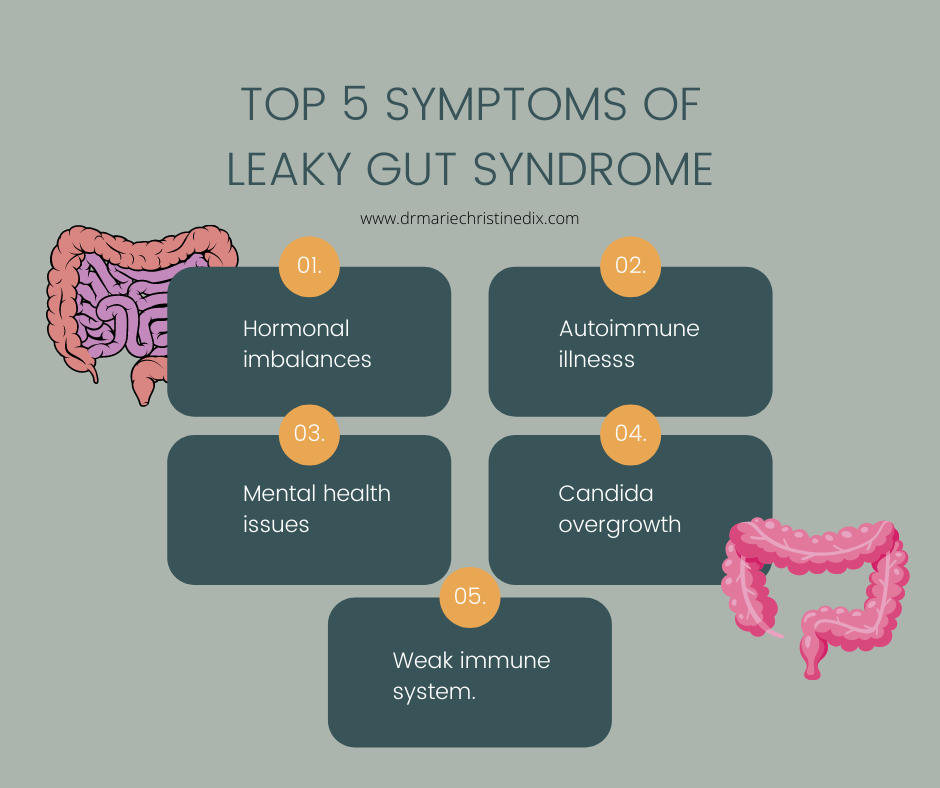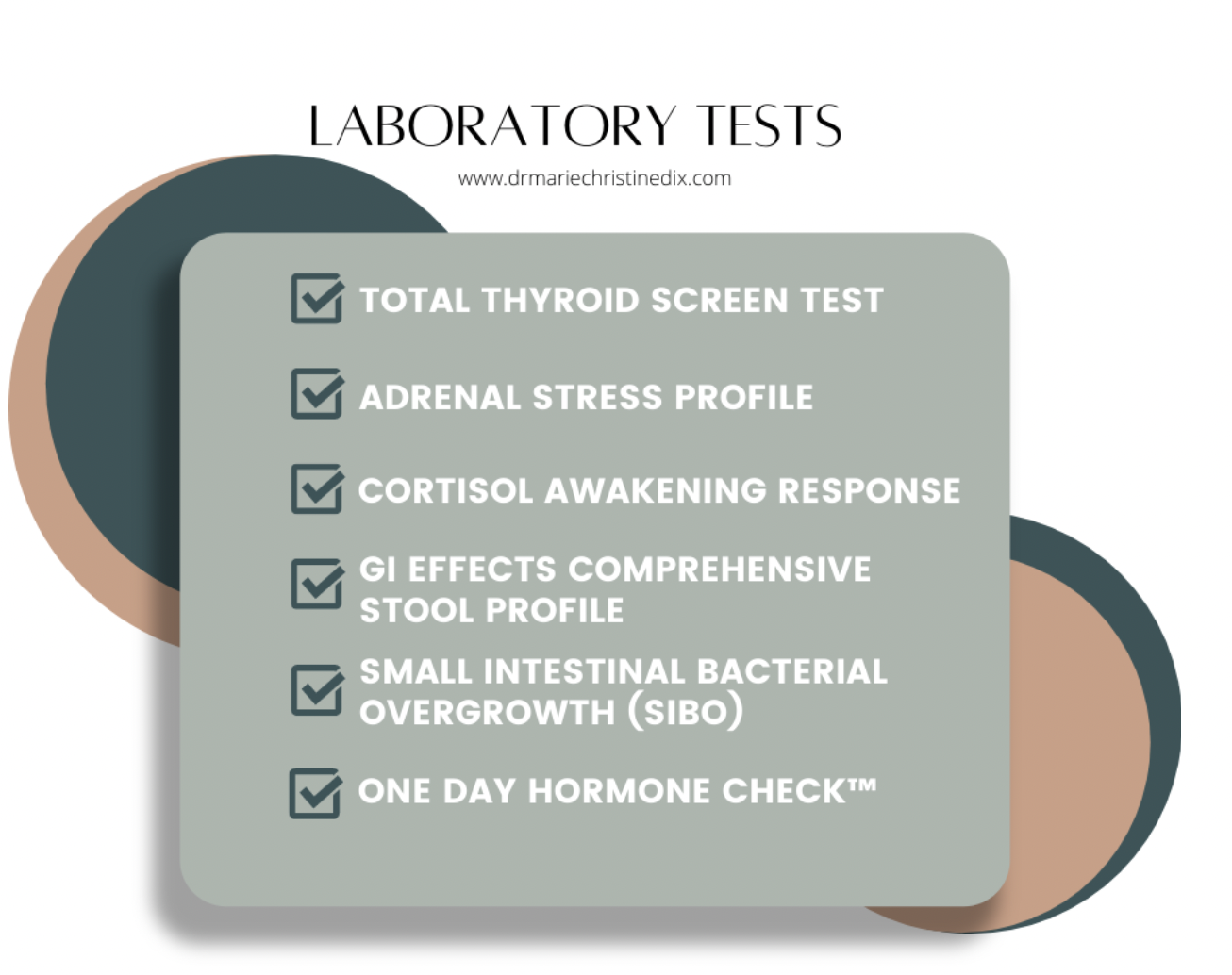Leaky Gut Syndrome Explained
Let’s start with explaining what is Leaky Gut Syndrome :
The gastrointestinal tract is the tract from the mouth to the anus which includes all the organs of the digestive system in humans. Food taken in through the mouth is digested to extract nutrients and absorb energy. But the gut does so much more than extract nutrients and absorb energy... it is closely ruling hormone health, skin health to mental health, and even toxin and waste elimination (detoxification).
About 70 -80 percent of the immune system is in the gut, so it is crucial to keep our gut health at an optimal level. Simply put: a healthy gut is a sign of good health.
A healthy gut starts with healthy pooping. Visit my previous article all about constipation. You will find an extremely detailed guide to solve constipation: Symptoms, Causes, Testing, Treatment & Prevention. Click here to read.
With having constipation fully covered I wanted to proceed with discussing another challenge many people face when it comes to healing their gut conditions.
Leaky Gut Syndrome.
Leaky gut syndrome also known as intestinal permeability, is a condition that can disrupt your gut health and pave the path for a host of other medical conditions.
A healthy gut is lined by a wall, called the intestinal epithelium. It is a single cell layer that forms the lining of both the small and large intestine (colon) of the gastrointestinal tract.
This layer is composed of epithelial cells and serves two main functions:
Absorbing useful substances into the body
Restricting the entry of harmful substances.
Various diseases and conditions can lead to its dysfunction which, in turn, can lead to further complications. The cause of these “complications” aren’t always seemingly obvious as to the cause.
The gut lining (intestinal epithelium) has a complex anatomical structure which is responsible for immunological and neuroendocrine functions. This is the reason why we put so much focus on gut health. If you want better immunity you simply need to focus on recovering your gut health.
Why should leaky gut syndrome be taken so seriously? What are the Signs and Symptoms of Leaky Gut Syndrome?
Top 5 symptoms of leaky gut syndrome:
Hormonal imbalances.
Autoimmune illnesss eg rheumatoid arthritis, joint pain, lupus, eczema, psoriasis, celiac disease.
Mental health issues like depression, anxiety… Please read my blog on Less Common Signs You Have a Gluten Intolerance.
If you are someone that struggles with a lot of different mental health disorders, such as anxiety and depression, it may very well be linked to your gluten intolerance.Candida overgrowth.
Weak immune system. Are you always first one to catch a cold or take longer to clear colds? Healing your gut takes time. you might find it useful to read my Extremely Detailed Guide to This Year's Flu Season article here.
Leaky Gut Syndrome when ignored and untreated causes chronic inflammation throughout the body that may result in a wide range of conditions, including chronic fatigue syndrome, rheumatoid arthritis, lupus, migraines, multiple sclerosis, and has even been found to play a role in the presentation of autism spectrum disorders.
What is the Leaky Gut Sydnrome?
What Causes Leaky Gut Syndrome?
There are a number of factors that can influence and cause leaky gut, below are the top 4:
Bacterial imbalance (Dysbiosis). Dysbiosis is a leading cause of gut barrier disruption and leaky gut.
Poor diet also one of the leading causes of poor gut health. I have previously written all about gluten intolerance. I highly recommend to read my article so you can become more familiar with my dietary suggestions for gut health. Read here.
Chronic stress affects the gut in many ways. From causing changes in stomach acid production which can impact how nutrients are absorbed and negatively impact our bodies ability to fight pathogens, to damaging the tight junctions of the gut wall leading to leaky gut, chronic inflammation and fatigue.
To support you with tips on how to mange burnout and stress I have written an article. Discover my top 6 Hacks for Burnout and Overwhelm here. Managing stress and stress related illnesses is very important.
If you are looking for tools that you can implement almost instantly learn more about how to use Medicinal Essential Oils for Stress here. You can always visit my webshop here to stock up.Toxic lifestyle. Toxic products, and environment. We absorb over 80,000 chemicals on a daily bases from our personal care products, lifestyle, air, environment, tap water, food… not mentioning medications we ingest on top of that. Visit my webshop and discover my favourite go to, natural products.
How to treat Leaky Gut Syndrome?
Functional Medicine protocols and formulas such as dietary supplements, probiotics, herbal remedies, gluten-free foods, and low-FODMAP, low-sugar, or antifungal diets can tremendously support the individual with healing. It is important to state the presentation and cause of every individuals Leaky Gut Syndrome is different (as we are all different) so it is important to understand what the main “drivers” are so that an appropriate treatment and management approach can be started. Otherwise you could spend a lot of time, energy and money going down multiple avenues without obtaining the results you hoped.
Food groups to eat when you are diagnosed with leaky gut:
All type of vegetables, fruits, spouted seeds, gluten free grains (here his why), oats, healthy fats, seeds and nuts, non dairy milks, eggs, organic meats like chicken. Try to avoid or at least limit red meat as much as possible.
Food groups to avoid when you are diagnosed with leaky gut:
All junk foods, deep fried foods, and food like products, GMO and processed foods, white carbohydrates like pasta, and white wheat bread. Cakes, sugary treats and sugary drinks. Refined oils and alcohol. To begin your transitioning period start here.
Some supplements and treatments that may be beneficial in the treatment of leaky gut syndrome may include:
zinc.
L-glutamine.
collagen peptides.
probiotics.
fiber.
curcumin.
Medicinal Essential Oils for a Leaky Gut Syndrome:
Medicinal Essential oils can help tremendously when it comes to repairing the gut:
They may support the body with destroying harmful pathogens
Repairing the intestinal walls
Reducing inflammation
Boosting the immune system
(I only use doTERRA - please get in touch with me to order this brand of oils as I am happy to offer you my wholesale discount and take Vat off - you can also order here. Visit my webshop.)
My top 5 essential oils for your leaky gut:
1. Peppermint
Aids in digestion and for its anti-inflammatory properties. It can be applied topically to the abdomen, and ingested when prepared properly. Please get in touch to order, I will share with you my oil protocol for healing leaky gut.
2. Lavender
Since stress and anxiety can lead to leaky gut problems, using doTERRA lavender aromatically and topically can help to relieve these issues. It is also anti-inflammatory and helps to alleviate pain, and research suggests it helps restore gut microbes to balanced levels.
3. Thyme
doTERRA Thyme can help your gut restore its balance of good microbes. Thyme essential oil must be diluted according to directions before applying topically; this is NOT an oil to ingest.
4. Oregano
A potent antimicrobial doTERRA Oregano is particularly effective against E.coli, candida, and listeria
5. Cumin
doTERRA Cumin essential oil helps good microbes flourish while suppressing those that are damaging. It supports liver and pancreatic health as well. When prepared properly, this oil can be used aromatically, topically, and internally. It is important to state only doTERRA oils are proven safe to be taken internally. Start your journey here.
Laboratory Testing at my clinic. Discover the underling issues.
Priority testing recommended by Dr. Marie-Christine Dix
GI Effects Comprehensive Stool Profile
The GI Effects Comprehensive Stool Profile can reveal important information about the root cause of many common gastrointestinal symptoms such as gas, bloating, indigestion, abdominal pain, diarrhea, and constipation. This stool analysis utilises biomarkers such as fecal calprotectin to differentiate between Inflammatory Bowel Disease (IBD) and Irritable Bowel Syndrome (IBS). 4,5 In addition, Genovas GI Effects test can be used to evaluate patients with a clinical history that suggests a gastrointestinal infection or dysbiosis.
Gut microbes are codependent with one another and with their human host, and the health of one affects the other. A sizeable volume of research associates a dysbiotic, or imbalanced gut microbiome with multiple disease states both within and outside of the GI tract. The diverse metabolic activities of the microbiome ultimately impact the human host, and the activities of the human host ultimately affect the health of their microbiome.
Further ResourcesLeaky Gut As a Danger Signal for Autoimmune Diseases. Frontiers in Immunology, May 2017.
The intestinal epithelial barrier: a therapeutic target? Nature Reviews Gastroenterology & Hepatology, November 2016.
ENJOY
Sign up for my newsletter here: http://eepurl.com/hBqBdH
Visit my website at:
https://drmariechristinedix.com/gut-health-course-waiting-list


















